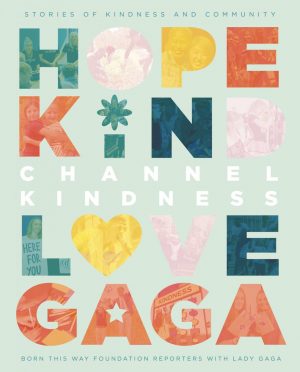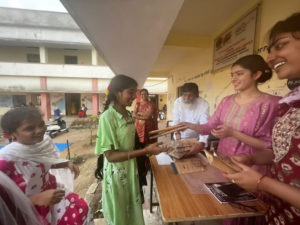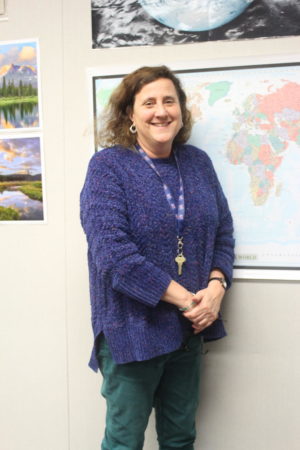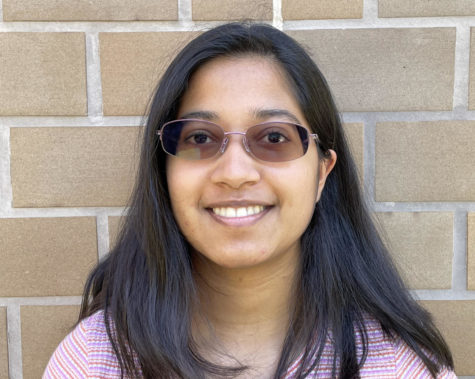Peek into the world of life coaching with Stephanie Sebag
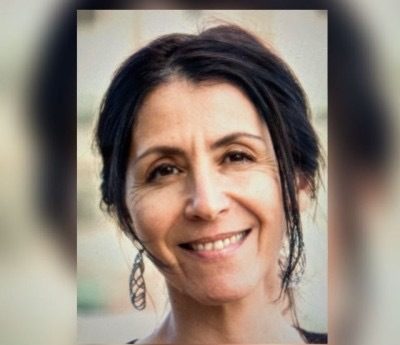
Stephanie Sebag
Stephanie Sebag describes her world of life-coaching and travel.
May 30, 2023
Life coaching. This profession would seem quite abstract to the average person. There are so many passions and lifestyles that require coaching: sports, general knowledge, business, art, clothing, home economics, etc. And there are many specific avenues of guidance. So what exactly does it mean to be a life coach? And why would a life coach be helpful to a person?
With me today is Stephanie Sebag, an international executive, author, speaker, board director and most importantly a business and life coach. As I delve into her work experience, let us explore the world of a life coach.
“Hello, my name is Stephanie Sebag. I was raised in France [and] stayed in France until I finished business school. After that, I [completed] my master’s in marketing in England. Then I moved to Paris, my team was in charge of recruiting for startups during the dot-com wave. I was working for the leader in executive search in Europe.”
Q: How did working as a national team account manager propel your career as a global coach?
A: I knew from a very young age that I wanted to help people. One of my strong values was altruism. I started my career in recruitment and moved my way up to be in charge of the region of Paris where all the big 40s had their headquarters. They gave me all the key accounts. In a way that helped me become a coach because after recruiting for all these big organizations, I created a very strong bond with the Human Resources Department. I began to give advice to them like, salary, who to recruit, who would move inside the organization. And I recall one of the biggest banks in Paris at that time calling me and telling me we have a lot of employees right now that are leaving the organization and we’re wondering if we are underpaying our employees. The bank trusted me enough to give me access to all the salary ranges to help them.
Q: How did you transition from being an account manager to becoming a life coach?
A: I was working for the biggest recruitment company in Europe called Michael Page. The way it worked was that you start as a consultant as a recruiter, and then you build your team, and then you go up in the organization. I was lucky to get the region of Paris where there was so much work. After meeting one candidate after another, I realized that I was coaching instead of just providing a job opportunity. For example, one morning, I had a meeting with the candidate at eight. And that morning, [although] I’m never late, I arrived at 8:10 a.m. When I entered the room, she was already there. She was furious. I apologized. But then I [realized] there was something bigger than this whole meeting, because she was not able to move on. Long story short, after asking a few questions, I made her realize that this anger came from the fact that her father was always late when he would pick her up from school. So once she was able to articulate that, we could return to the meeting and to the present instead of being [caught up] in the past.
Q: Just like you did with her, how do you help your clients realize their struggles?
A: There is a lot of listening, a lot of understanding. Coaching is a lot about being curious about someone and trying not to be judgmental. We all have our own software, different ways to read the same situation. So the whole idea is to understand the software of the person. And then to make them understand their own software. If you stop there and [only] you understand the way they’re reading a situation, you’re creating an unhealthy relationship, where they are dependent on you. So I help them understand their own internal language so they know how to move forward when they’re stuck.
Q: What does it mean to be an international global coach to you?
A: “International” is because I coach in 12 different countries. I didn’t wait for COVID-19. I coach over the phone, mostly, I don’t coach via Zoom. Because among the five senses, the only sense that cannot send you a message is the ear. Since coaching is really about canceling myself in front of you, so that you can experience being by yourself. I like to coach over the phone. It allows my clients to be with themselves. The silence is a big part of coaching. Because coaching is about asking questions, not to get an answer but to train your brain to ask yourself questions.
Q: What sort of questions do you usually ask them? Is there a step-by-step format to go by?
A: It depends, but most of the time, I want to understand their decision-making process. By understanding the story of someone, you can understand how they make decisions, and how they can improve these decisions and learn from them. Usually, I like to start with “Tell me about yourself.” That’s the first question to learn about the person and their journey. Depending on the client, sometimes they know where they’re stuck. They can already identify it. And sometimes they don’t, and that’s totally fine. And I have some clients that I’ve been coaching for two years now, for example, it’s interesting, because it’s great to see the person growing and growing and growing and not needing you as much. It’s very rewarding.
Q: What is a common piece of advice you’d give to your clients?
A: That’s an interesting question because coaching is not necessarily advising people. When they need it, you have to be able to provide advice. But it’s better if they think about it and they come to the answer themselves, and that involves providing them with the right questions. Again, I don’t want to create this relationship where they [wonder], “What am I going to do without my coach?” That’s not coaching. So you want them to be able to find the solution and have them process it themselves like, “I’m stuck. How about I ask myself these questions to find the solution?”
Q: Could you talk a little bit about your “Evening with Meaning” community workshops? What was the inspiration behind that?
A: I, in addition to being a recruiter, I was a jazz singer. I used to sing and I used to record. Then one day, I got a polyp in my vocal cords, I had to go through surgery, after that, I couldn’t sing anymore. So instead of singing, I started to make collages. And I started to sell them. I had two or three different exhibits in New York. Because I was not on stage anymore, I [didn’t feel] visible anymore. I used these exhibits to explain to people what I did. I started to hold workshops, “Evening with Meaning,” so that women would be empowered and get clarity through this collage-making process. The process of creating a collage is that we have a big table with lots of images, paints, crayons and more. People start to assemble a collage, decide they don’t want this piece anymore, or they want to move it. And then they start gluing the piece. After this process the women would leave with a lot of clarity; it’s very seamless. You basically have what’s on your mind right in front of you. It’s very powerful.
Q: And what are your plans for the future?
A: I love the fact that my book “Fully Charged” is out. It’s already available in English and French and it’s going to come out in Spanish soon. My goal is to diffuse this book in as many places as possible. I know that everyone that has read it so far has said it’s very accessible. So even a teenager can read it and learn how to make decisions. It’s a very simple book, but it talks about very complex topics. So I would love for the book to be distributed in many countries, because this is the book that I would have loved to read when I was young. I received another comment about the book recently, the person said “It’s the primer for any life.” I’m going to focus on my book and on coaching. Something I want to do is supervising coaches.
“Helping people is wonderful. So when you [have the opportunity] to help, first of all, you take it. And second of all, it brings you so much joy,” Sebag concludes.

